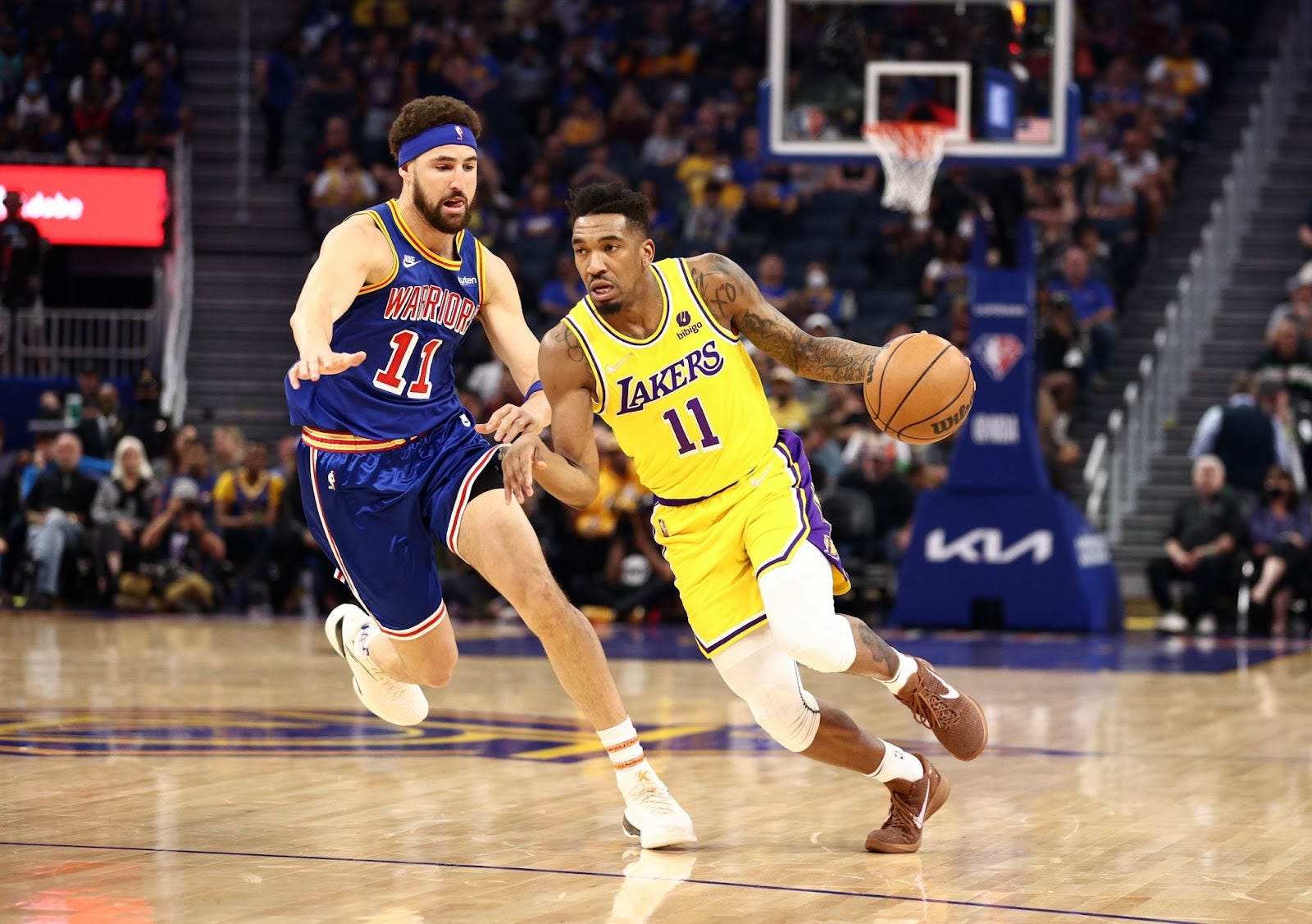Who’s the next Gary Payton II?
These role players could offer season-changing value
BY DAVID THORPE
San Francisco and Sacramento are 90 miles apart. The former is home to the NBA’s most dynastic team since Kobe and Shaq were both playing in LA, a megastar-led juggernaut that has won four rings since 2015. The latter is home to the league’s mainstay of mediocrity—a team that has managed zero winning seasons or playoff appearances since the 2006 season.
If the Sacramento Kings are going to emerge from the darkest, most dilapidated cellar the NBA has seen for 20 years, they will need to roster players who earn—and then exceed—their salaries. That’s how you win 50-plus games and give yourselves chances to win championships. That’s the trick the Golden State Warriors have seemingly monopolized since their run first began.
To everyone else, it looks like the Dubs are spinning straw into gold. That’s certainly what they did with Gary Payton II—the 29-year-old guard who had appeared in just 71 games prior to last season. But there’s good news for other teams out there struggling to stay afloat in today’s NBA: It’s not magic. And that means that any team—even the Kings—can replicate those results.
Payton II’s narrative was one of last season’s most inspiring. His contributions inspired TrueHoop to label him “the best little big man,” and we credited the Warriors for finding the key to unlock his gifts as an undersized but perhaps unparalleled defender. We also highlighted how Payton II had been available to all 30 teams when the Warriors signed him last October. This October, he’ll be suiting up for the Portland Trail Blazers, having signed a fresh three-year deal worth just over $26 million. Payton II will make more money in the next six months than he did in his previous six seasons.
As a professional player-development specialist, I’d never suggest that Payton II was incapable of finding his niche and earning his new deal. But let’s be honest: He didn’t suddenly discover the secrets of his game after four years of college ball and six more fighting for survival in the world’s toughest league. No. He was signed by a team that scripted a great part for him—a part he was born to play and then played to perfection.
Again, going into last season Payton II had played a total of 71 regular-season games and had never appeared in the playoffs. Though the same age, fellow 2022 Warriors backup Otto Porter entered last season having played in 441 games with 31 playoff appearances to his credit. In other words, no one plans to rely on 29-year-olds with so little experience—especially when, like the Warriors, you are desperate to contend for another title. Cap limits forced the Warriors’ hand, though, and Payton II got his chance. His story—indeed the Warriors’ entire championship run—might feel like a made-for-motion-picture event, but the day-to-day factors are mind-numbingly boring.
Over the 2021-2022 season, Payton II averaged just seven points a game; he then scored only 78 total points in 12 playoff appearances. (Stephen Curry, for comparison, logged 77 points in just Games 4 and 6 of the NBA Finals alone.) Though his perimeter shooting got better with Golden State—Payton II nearly doubled (43) the amount of 3s he had made in his whole career (23)—he canned more than two 3s in a game just three times all year (then twice more in the playoffs).
So … how was Payton II able to have so much impact that Portland would offer him a deal that would more than double his career earnings in the first year? And why were the Warriors, who ultimately chose to avoid the corresponding luxury-tax penalties, so desperate to keep him?
Simply put, the Warriors tailored a role to Payton II’s talents, and his performance yielded more wins than expected. Now the Blazers are hoping he’ll be able to do the same for them.
At TrueHoop, we have created—in conjunction with Dr. Steven Ilardi and Dunks and Threes founder Taylor Snarr—a new metric called Bonus Wins. We know that, in the 2022 season, teams paid $3.35 million per win. If the benchmark for contention is winning at least 55 regular-season games, that means contenders would have to spend $184 million on payroll (before luxury taxes).
The best rosters are loaded with players who earn their teams more wins than their salaries project. Guys still on rookie (or rare team-friendly) deals sometimes offer enormous bonus value—as do MVP candidates. Some of the world’s best players even exceed their max salaries. Guys on league-minimum deals? Bales of straw waiting to be spun.
The challenges? First, you have to write the script; then you have to direct it well. That’s the only way that players are going to match—and then hopefully exceed—their contract value. Knowing what your team wants, and getting what it needs, is what separates the Warriors from the Kings.
Let’s look at how the Warriors were able to work their “magic” on Payton II and then target a few players with the potential to yield similar returns for their teams this season.




